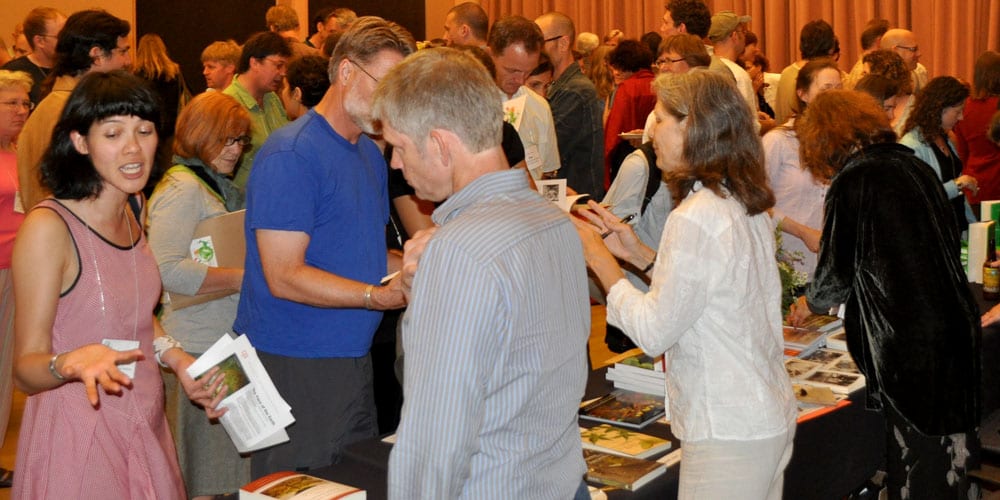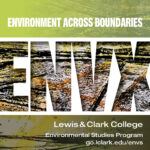Biennial Conference
ASLE + AESS Conference: Reclaiming the Commons
July 9-12, 2023
Oregon Convention Center, Portland, Oregon
The Association for the Study of Literature and Environment (ASLE) and The Association for Environmental Studies and Sciences (AESS) are excited to announce that they will hold their next conference jointly. The theme is “Reclaiming the Commons,” and the event will offer opportunities for interdisciplinary collaboration, networking, and professional development with a variety of sessions sponsored by both organizations. Other information can be found below and at aessconference.org, and will be updated as it becomes available.
- A draft schedule of sessions is posted at the conference website Schedule Page.
- Looking for details on registration, travel awards, graduate student writing awards, or exhibiting, advertising, and sponsorship opportunities? Visit the Participant Information Page
- Looking for details on the schedule and program, plenary speakers, workshops, authors’ reception, publisher exhibit, and other events? Visit the Schedule and Events Page
- Looking for details on transportation, lodging, dining, and the city of Portland? Visit the Travel and Stay Page
- Want to connect with other attendees about rideshares, roomshares, childcare/sitter sharing, meetups? Use THIS MESSAGE BOARD LINK to post/search under your preferred topic on the conference message board.
Conference Sponsors
Platinum Level:
Gold Level:
Silver Level:
Bronze Level:
Friend Level:
Conference Theme: Reclaiming the Commons
In light of the increased biological and political vulnerabilities of our times, the environmental humanities seek to reassess what it means to care for the commons and how the commons are conceptualized—whether it be terrestrial, aquatic, atmospheric or sociocultural. We are faced with the challenge to renew the bonds of community and to inspire the affections of care that can move us beyond the insulation and fragmentation of the present. How might we restore attention to the commons? How can we take full advantage of a deeper self-examination and rekindling of affections for place that has been facilitated ironically by the pandemic? How might individual and planetary vulnerabilities transform into opportunities for collective strength? And in ongoing colonial settings, how can the commons be reconfigured as a decolonial project, that takes into account the widespread historical exclusion and dispossession of Indigenous groups and often unequal access to postcolonial commons?
The interpenetration of land and water in islands, their often archipelagic formation, and their situatedness in postcolonial and decolonial contexts have generated relational modes of thinking for artists, writers, activists and theorists who seek to move us beyond limiting epistemological and political boundaries. These relational modes seek to restore and renew commitments to ecological thought, action, and what Marisol de la Cadena calls “uncommonalities.” A testament to the powerful work of Indigenous scientists, activists, and thinkers, these efforts are one source of inspiration in this time of increased isolation as they manifest a reclaiming of the commons—regionally, historically, politically and economically—and a renewed connection between the human and more-than-human community.
Other questions related to the theme of reclaiming the commons include:
- What are the community and regional obligations of the academic and the university to broader forms of commons?
- How can we translate the language of the academy into accessible language and actionable practice in local and vernacular contexts?
- How can we incorporate the contexts of the Global South in reclaiming the commons, and how can we create relational modes of imagining that stem from collaborative conversations, engagements and commitments?
- How can the language of science be brought to bear in the political and cultural work of reclaiming the commons?
- How can service and problem-solving become more central to the work of scholarship?
- How can the work of the environmental humanities become more influential politically and culturally?
- How might environmental scholarship become more multilingual and interdisciplinary, extending engagements with the commons beyond narrow and often exclusive cultural and disciplinary silos?
- What are the risks associated with such efforts?
Conference keynote speakers will explore interconnections between the sciences and the humanities and address concerns of activists and artists who bridge the gap between the academy and the public, engaging in various ways with the conference theme of reclaiming the commons.
Recorded Plenaries, Workshops, and Events from the 2021 Conference are available in the Conference Archive. For information on all past conferences, see the Conference Archive.

I first attended and presented at ASLE at the 2009 conference in Victoria, BC. At the time, I was a Master’s student and didn’t yet know whether I wanted to pursue studies in the field of environmental literature, or even a career in academia more broadly. After five days of amazing conference panels, intellectually stimulating conversations, and fun hiking adventures, I was certain that I had chosen the right field and the right profession. Now, attending ASLE conferences truly feels like coming home. I would not be where I am today without ASLE, an organization that is welcoming of all perspectives, all methodologies, and scholars at all stages of their careers. – Stephen Siperstein (English Teacher, Choate Rosemary Hall)
ASLE welcomes proposals to host both our biennial conferences and off-year affiliated symposia.
Biennial Conference Proposal Guidelines
These guidelines are to assist potential hosts in formulating a complete and compelling proposal for our large biennial conference.
Off-Year ASLE Symposia Guidelines
Details of how to submit a proposal for an ASLE seed grant or ASLE affiliation to assist with your own smaller symposium in non-conference years (even years).
Sustainability at Conferences
ASLE is committed to making our conferences as sustainable as possible. Please consult this document if you are considering proposing a Biennial or Off-Year ASLE Conference.
Accessibility at Conferences
ASLE is committed to making our conferences as accessible as possible. Please consult this document if you are considering proposing a Biennial or Off-Year ASLE Conference.
2023 Biennial Conference
July 9-12, 2023














